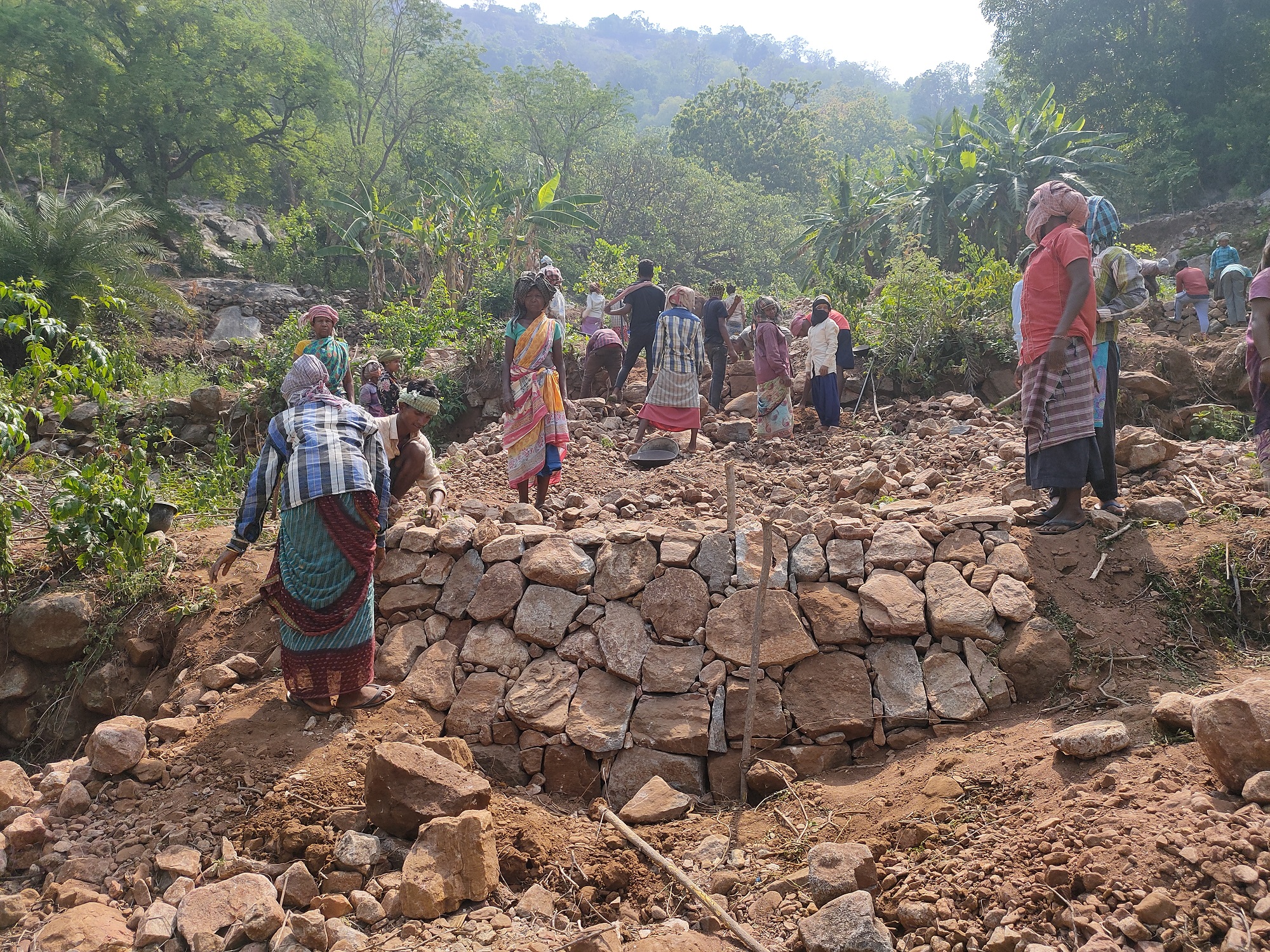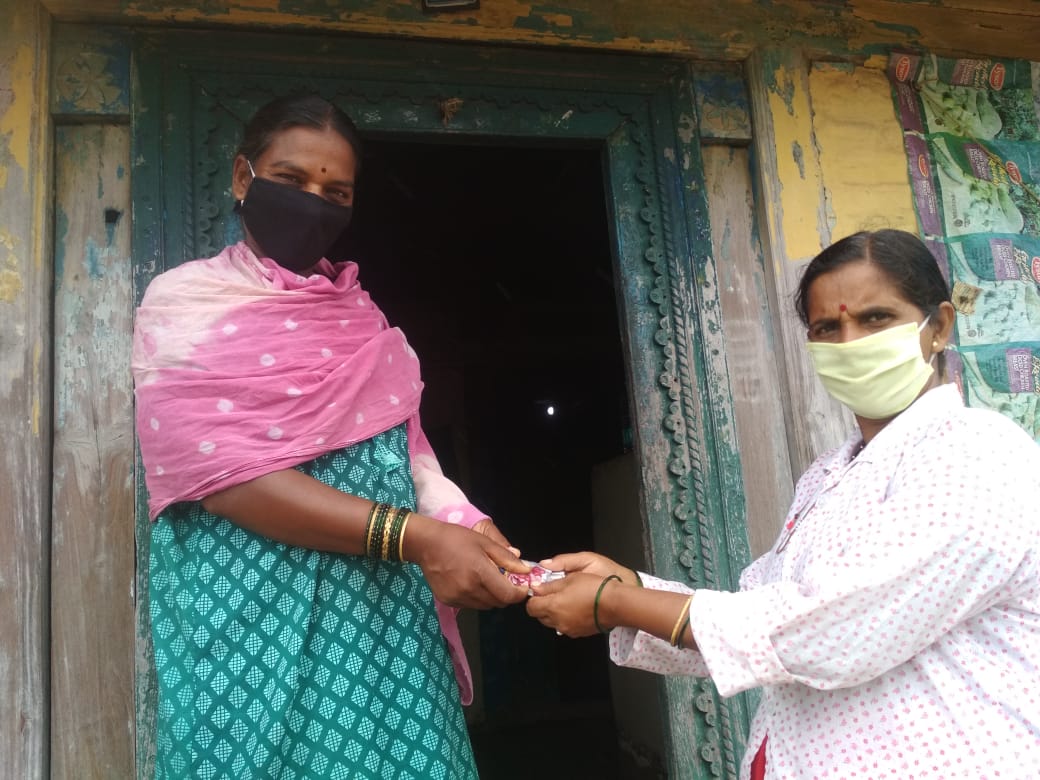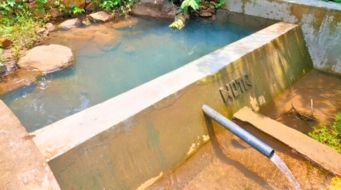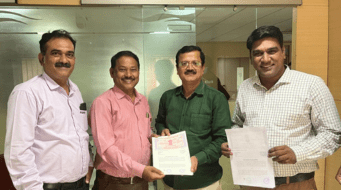(Based on data gathered up to June 30)
As the whole world stares at an uncertain future, Watershed Organisation Trust has been at the forefront, helping vulnerable communities in rural India cope with the aftermath of COVID-19. We are doing whatever it takes to mobilise support through our regional resource centres to tackle the challenges faced by marginal and smallholder farmers who are engaged in agricultural activities as the kharif season begins.

The fragile socioeconomic fabric of rural India should be salvaged at any cost before it leads to a collapse of disastrous proportions due to the spread of the coronavirus.
WOTR is gradually building a safety net for the rural populace, in the seven states we are present, so that the inevitable consequences of the pandemic are minimised and the farmers’ lifelines remain insulated in the kharif months that are especially crucial.
The pandemic has already cost India at least 24,000 lives, with over 900,000 cases, and each day, the numbers are rising rapidly. Globally, there are about 13 million cases and over 500,000 deaths as a result of the pandemic.

As the monsoon advances across the subcontinent, every farmer is anxious. He/she needs to ensure the kharif cycle isn’t broken. It depends on making sure that the fields are sown on time and agricultural activities go ahead as planned.
This is where Watershed Organisation Trust is playing a key role. Our regional resource centres are working 24/7 with the help of community-based organisations, gram panchayats, self-help groups and local civic bodies among others to provide relief and implementation support.
Here is a wrap of our activities based on data gathered up to June 30.
Outreach
In Maharashtra, Madhya Pradesh, Telangana, Odisha, Jharkhand, Chhattisgarh and Rajasthan, WOTR staff is working hard to help the rural communities pull through the fallout of the pandemic. With the inflow of migrants to their native villages, the future, however uncertain with mounting challenges, with the help of our friends and donor partners we are filling in the gaps wherever required, so that rural communities that constitute the lifeline of this nation, weather this catastrophe of unprecedented scale through and through.

WOTR is supporting communities in its project areas to adapt to the post-COVID-19 scenario. We have reached out to 124,238 households in 657 villages of 26 districts in seven states as per data available on June 30.
Communications / Awareness

Recent advances in communication technology are no doubt pathbreaking. However, if used with malicious intent, it can harm vulnerable communities, especially in the time of a deadly disease we know little about. Increasingly, rumours and quackery gain popularity on online communication platforms that can adversely affect the social fabric of vulnerable communities. WOTR’s awareness drives are aimed at making the rural populace understand the dangers posed by such unverified information circulated online regarding COVID-19. It is of utmost importance that through these sessions, the rural folk are provided a better sense of community, resilience and confidence to stay sharp and focused in these tumultuous times.
2,565 awareness sessions, organised by WOTR, impacted 157,827 individuals, according to data gathered until June 30.
28 training sessions were attended by 1,344 participants of which 681 were women. 216 gram panchayat members, 364 Village Development/Health Committee members, 402 SHG members, 110 community members, 192 Wasundhara Sevikas/Sevaks and 28 government officers attended the training sessions.
Employment / Livelihood
By now, the millions of migrant families from the cities have arrived in their native villages. Lack of data or not, at the moment, there is no significant rise in the coronavirus cases in rural India. However, it would only be wise to brace for a peak as the majority of those returned to the villages were not screened for infections and probably have not spent time in quarantine after their arrival.
Moreover, there is a larger responsibility for the administration, civil society organisations and NGOs to provide adequate support for the returned individuals in terms of livelihood — providing employment opportunities and such.
WOTR is creating job opportunities in villages where our projects are underway. We hope, in the near future, we can restore rural life back to normal in our project areas, as it was pre-COVID-19.

WOTR and MNREGA together generated 338,938 labour days for 20,008 labourers. Since April 1, 12,160 families have benefitted from labour. WOTR-MNREGA spent Rs 7.64 cr, since April 1, in wages.
Climate-resilient agriculture
WOTR has been working to make communities resilient to the climate crisis in its project areas. Ecosystems-based adaptation is a key component of our work with projects already underway. We have been helping farmers adopt sustainable practices, so that, in time, they become resilient to extreme weather events triggered by climate change, a regular occurrence in recent times.

As per data gathered up to June 30, we have helped 5775 farmers plant 42,712 trees and issued advisories to 13,457 farmers. 4,469 farmers are registered in the FarmPrecise app — our mobile application dedicated to farmers across rural India.
Here is a list of our pre-kharif activities:
- System of Crop Intensification (SCI) in 2,748 acres of 4,312 farmers
- System of Rice Intensification (SRI) for paddy in 193 acres of 341 farmers
- 9,918 farmers have adopted organic formulations. 1,689 farmers benefitted from composting.
- 1,354 famers adopted green manuring
- 2,649 farmers received seeds
- 1,109 acres under micro irrigation
Health and Nutrition

Up to June 30, WOTR distributed medicines to 16,000 individuals across the state of Maharashtra — Zenplex capsules, Walcium D3 500 (Calcium 500), Ferrous Sulfate and Ivermectin 12 mg — exclusively for those in quarantine. The medicines were prescribed with proper guidance and in consultation with medical practitioners.
Return of the migrants
At the moment, the vast majority of the migrants in our cities have arrived in their native villages. So far, reports do not suggest there is a marked rise in coronavirus cases in rural India. Given the poor health infrastructure in these parts, there may, in fact, be a rise in cases going forward. Besides, providing livelihood means to the migrant returnees – assimilating them to work related to kharif agricultural activities, or to work in our own project areas – has been a top priority for WOTR.
As of June 30, 18,264 returning migrants have arrived in WOTR’s project villages of which 3,964 are in quarantine. We have provided support for 962 migrant returnees as of June 30.
WOTR is providing jobs in a remote tribal village
Kinteda is a small tribal hamlet in the Kulusing gram panchayat of Gunupur block in Rayagada district, Odisha. The last seven kilometres to reach the village is a ghat road meandering to a hilltop which is inaccessible during the monsoon. The village is at a height of 396 m above sea level. There are 56 vulnerable tribal households here. The average agricultural land holding of each household is just 0.4 hectare. The main source of income is labour.

Due to COVID-19, the villagers were deprived of labour for two months. During Unlock 1.0, they were unable to find work. WOTR surveyed the site for potential watershed development and drafted a net plan for two patches where the surface water runoff velocity was high. Further on, it was decided to construct nine Continuous Contour Trenches (CCT) along the hillock. During flash floods, eroding soil from the hill gets deposited in the agricultural land, resulting in crop loss. Stone bunds and Loose Boulder Structures (LBS) in the gullies were constructed involving Kinteda villagers, as outlets for the runoff water without affecting the soil. This will conserve 1,345 cubic metre runoff water and obstruct flash floods and erosion of top soil from the ridge area to the valley where there are paddy fields. The runoff will be caught by the CCT. The paddy fields downstream will have sufficient irrigation through percolation. This is a longterm benefit subject to maintenance of the CCT. Providing employment to 56 villagers, with Rs 74,052 distributed among 56 vulnerable households in daily wages, the work was completed on June 6.
“Our village is situated in a remote location. No one bothers to enquire about us. However, WOTR staff immediately called a meeting and provided us with work after understanding our situation in these uncertain times. We have never executed any work with so much technical precision – like measuring contours and so on. Overall, it was a good experience for us,” said the ward member from Kinteda.
Distribution of essentials
Gradually, the broken supply chains across the country are being brought back to normal wherever possible sans in the hotspots and containment zones. In rural India, the lives of small traders, smallholder farmers, migrant returnees, daily wagers, their families – children, women and the elderly, depend on the revival of economic activity, for which the supply chains are crucial. In this context, help in the form of interim relief is a primary necessity.

WOTR is distributing grocery kits, sanitary kits and protective face masks in project villages. 341 tailors made 86,896 face masks. 97,243 individuals received face masks.
Till date, WOTR has distributed 8,613 grocery kits, 41,175 sanitary kits and 86,896 face masks across its seven project states apart from facilitating PDS to 6,513 households.
Sustenance support
Multilayer farms and kitchen gardens are two major initiatives of WOTR. This is part of our programme to build resilience among rural communities to the unfolding climate crisis. Though both the activities were kickstarted much before the onset of the pandemic, now, multilayer farms and kitchen gardens are proving to be a blessing in disguise in the time of penury.

As of June 30, 2020, 24,671 households have benefitted from 14,244 kitchen gardens and 562 multilayer farms.
12,884 quintals of agricultural produce was sold, 1,913 families received Rs 2.28 cr from the sale facilitated by WOTR.
Community mobilisation
Wasundhara Sevaks/Sevikas, Panlot sevaks, Jal sevaks and Mahila Pravartaks, who are our village-level staff, along with Village Development Committees and Self Help Groups (SHGs) are together helping communities to adapt to the post-COVID-19 situation. For many, it is as though life as they knew it has ended. They have to scrape together what they have and start anew.
Our ground staff are providing whatever help the communities require to tide over the massive losses suffered by the villagers. They are provided with lifesaving hygiene essentials, critical awareness campaigns, protective face masks and sanitisation kits, besides essential supplies.

By June 30, 2020, WOTR mobilised 3,265 active personnel on the ground of which 2,003 were women.
Media coverage
WOTR’s initiatives often appear in the regional media. As of June 30, 30 news articles have appeared in local newspapers and 11 news stories in local television networks.
Acknowledgement
WOTR is grateful for the generous support of our donors, friends and colleagues who have made possible all of the above interventions. We would like to thank Becker-Cordes Stiftung, Bread for the World, EATON India Foundation, Education for Employability Foundation (E2F) through Rapid Community Response to COVID-19 Group (RCRC), Hindustan Unilever Foundation, IDH Sustainable Trade Initiative, IndusInd Bank Ltd, AXIS Bank Foundation, Khandke Wind Energy Pvt. Ltd, Rotary Club of Pune, Supraja Foundation, Tata Steel Foundation and American Friends of WOTR, and WOTRians who have spontaneously contributed a part of their salaries.






